
Celebrations are an essential part of human culture, bringing people together to honor important milestones, cultural traditions, and shared joy. However, the way these celebrations are conducted can differ dramatically around the world. Understanding local customs can make global celebrations more enjoyable and respectful. In this article, we explore 25 charming celebration etiquette ideas that highlight the beauty of diversity in global festivities.
1. Japan: Bowing During Greetings
In Japan, bowing is a traditional way to greet someone. The depth and duration of the bow can convey respect and politeness, making it essential to understand when to bow at celebrations, such as weddings or formal parties.
2. India: The Art of Timing
In Indian culture, timing is crucial during festivals and celebratory events. Arriving on time is a sign of respect, while being late may be considered rude. Therefore, plan your arrival accordingly.
3. Mexico: Embracing the Fiesta Spirit
Mexican celebrations often involve vibrant parties filled with music, dancing, and food. Being lively and joining in the festivities, such as traditional dances or songs, shows appreciation for the culture.
4. Italy: Importance of Family and Food
Family gatherings are central to Italian celebrations. Expect to share meals with large groups, and do not hesitate to bring a dish or dessert to contribute to the feast.
5. China: The Giving of Red Envelopes
During Chinese New Year and weddings, it’s customary to give red envelopes filled with money as a symbol of good luck. It’s important to offer these with both hands as a sign of respect.
6. South Korea: Respecting Elders
In South Korea, it’s polite to show respect to elders during celebrations. This can include bowing, serving them first during meals, and using honorific language when speaking to them.
7. France: Toasting Etiquette
In France, when making a toast, it’s customary to maintain eye contact with each person present and to clink glasses gently. Avoid crossing arms when clinking as this is viewed as bad luck.
8. Thailand: The Wai
The wai is a traditional Thai greeting where hands are pressed together in a prayer-like position. This gesture is often used during celebrations and shows mutual respect.
9. Russia: Never Toast Alone
In Russia, toasting is an integral part of any celebration. It’s considered bad luck to drink alone, so ensure to raise your glass with others to partake in the tradition.
10. Brazil: Understanding the Carnival
Brazilian Carnaval is filled with samba parades, street parties, and vibrant costumes. Joining in on the rhythm and movements of the dancers is a great way to show appreciation during this celebration.
11. Greece: Breaking Plates
In some Greek celebrations, it’s customary to break plates as a symbol of joy and celebration. Participating in this festive act can enhance the cultural experience.
12. Ethiopia: Sharing Coffee
The Ethiopian coffee ceremony is a significant part of celebrations. Guests are expected to participate in this ritual, which symbolizes community and friendship.
13. Scotland: The Ceilidh Dance
Scottish celebrations often feature traditional ceilidh dancing. Engaging in these dances not only shows respect for Scottish culture but also leads to fun and community bonding.
14. Nigeria: The Role of Praise Singers
At Nigerian celebrations such as weddings, praise singers play a significant role in honoring guests and the couple. Understanding their importance can enhance the festive atmosphere.
15. Germany: Oktoberfest Traditions
At German Oktoberfest, it’s important to participate in the beer toast and be prepared to stand when your group’s song is played. It’s all part of the festive immersion.
16. Indigenous Cultures: Participating in Rituals
Indigenous celebrations often involve significant rituals. Respecting these customs and actively participating, when invited, showcases appreciation for their heritage.
17. Lebanon: Enjoying Mezze
In Lebanese celebrations, sharing mezze (small dishes) is common. Try a bit of everything and ensure to compliment the host on their selections to express gratitude.
18. Jewish Traditions: The Importance of Blessings
During Jewish celebrations, such as Hanukkah or Passover, appreciating the importance of blessings recited over the meal showcases respect for tradition.
19. South Africa: Celebrating Ubuntu
In South Africa, the concept of Ubuntu emphasizes community and togetherness. Celebrating in a way that honors this philosophy brings people closer during festivities.
20. Spain: Embracing Siesta Culture
In Spain, the siesta is a cultural norm, and many celebrations incorporate this period of relaxation. Understanding and accommodating this can be essential for enjoyable festivities.
21. Australia: Barbecue Traditions
Aussies love outdoor barbecues as a way to celebrate. Bringing your favorite dish and beverages is a kind gesture that aligns with the communal spirit of Australian gatherings.
22. Philippines: The Bayanihan Spirit
Filipino culture emphasizes the bayanihan spirit during festivities, showcasing community cooperation. Helping out and participating actively in the preparations can be a true reflection of this spirit.
23. Finland: Quiet Celebrations
Finnish celebrations may be quieter and more reserved. Engaging in reflective conversations while respecting personal space contributes positively to the festive atmosphere.
24. Cuba: The Rhythm of Life
Cuban celebrations are characterized by music and dancing. Participating without hesitation in these social dances is essential for fully appreciating the festive vibe.
25. Turkey: Sharing Love Through Delight
Offering sweet treats like baklava to guests is a common gesture during Turkish celebrations, symbolizing hospitality. Sharing these treats shows your appreciation for their culture.
In conclusion, celebrating across the globe offers a fascinating glimpse into various customs and traditions. By respecting these unique etiquettes, we not only enhance our own experiences but also honor the rich tapestry of cultures that make our world so vibrant.
Celebrations are an essential part of human culture, bringing people together to honor important milestones, cultural traditions, and shared joy. In Japan, bowing is a traditional way to greet someone. 

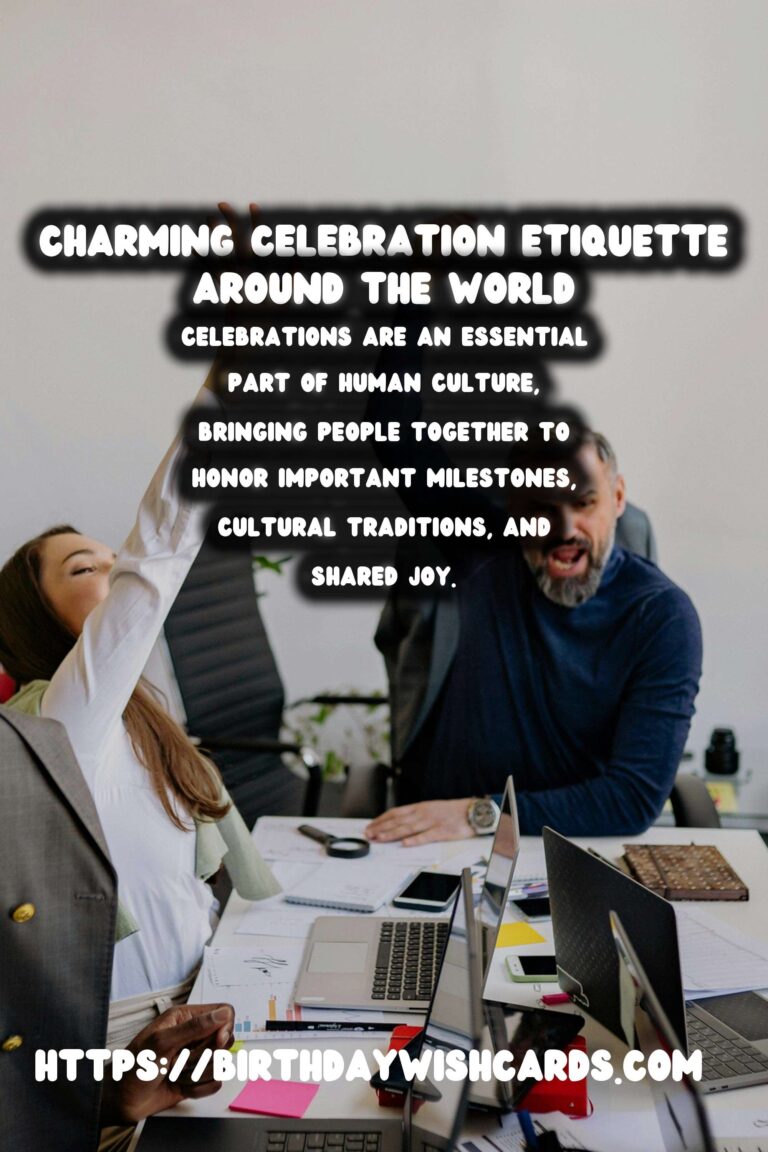
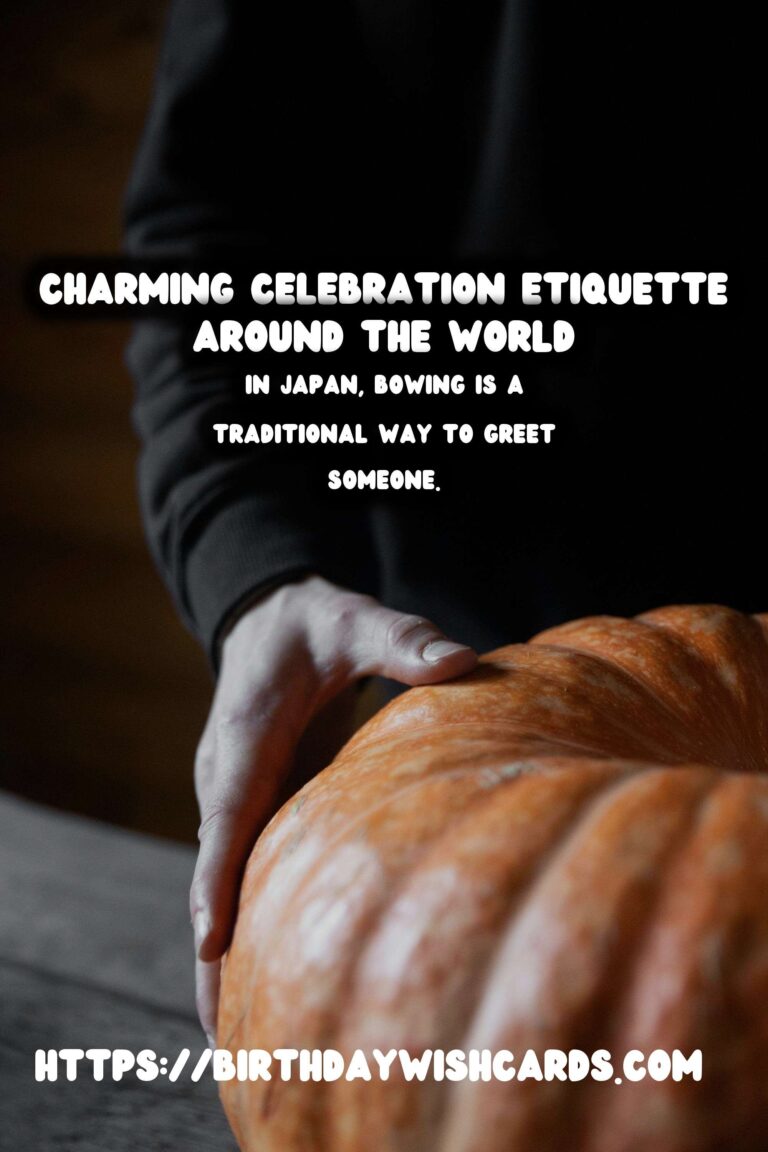

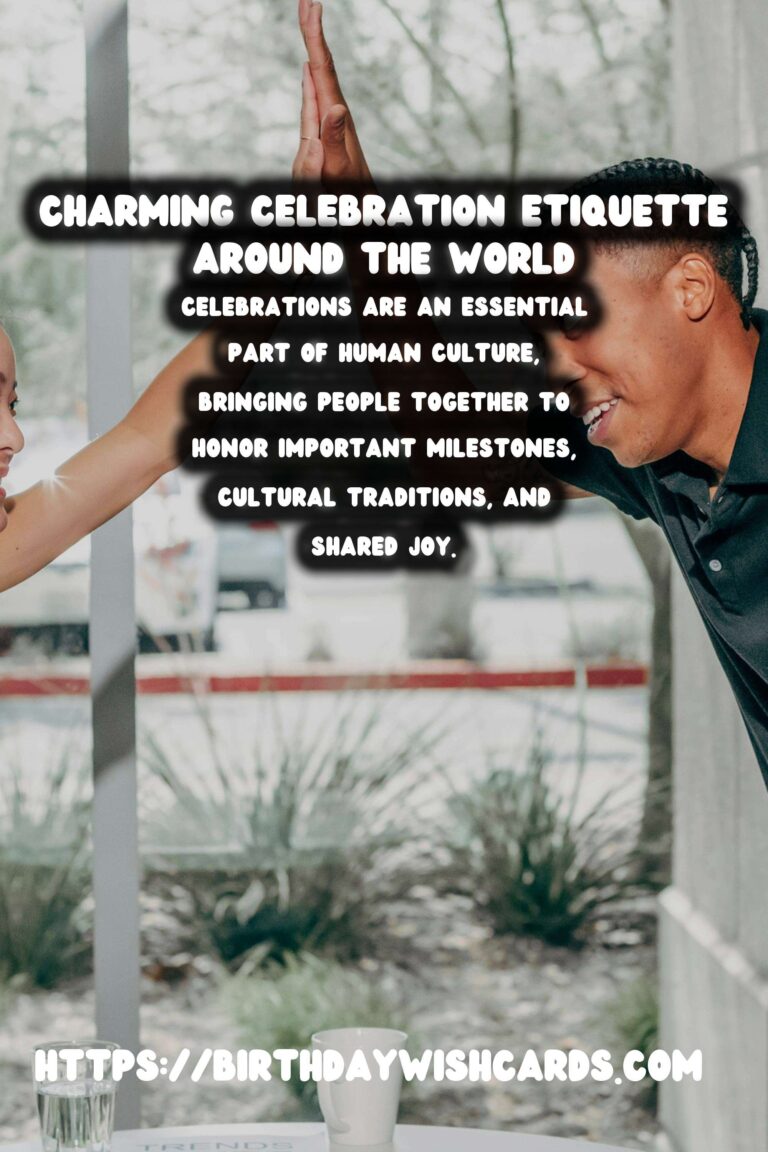


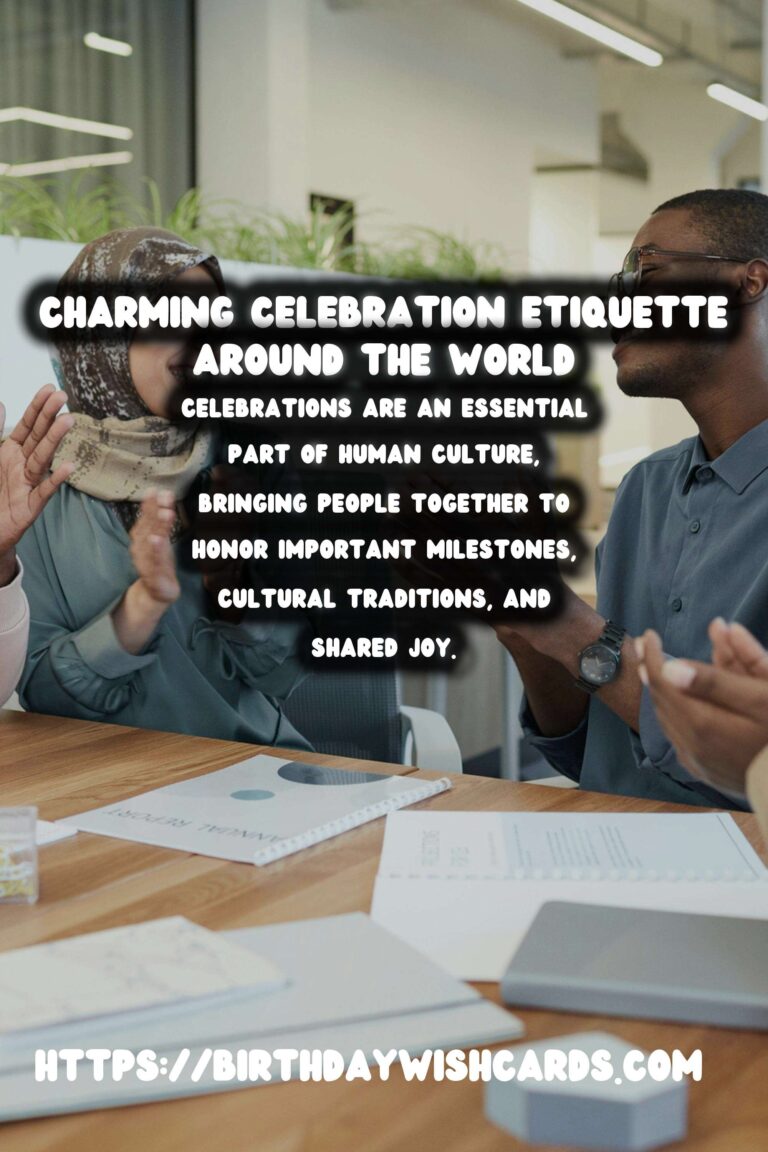
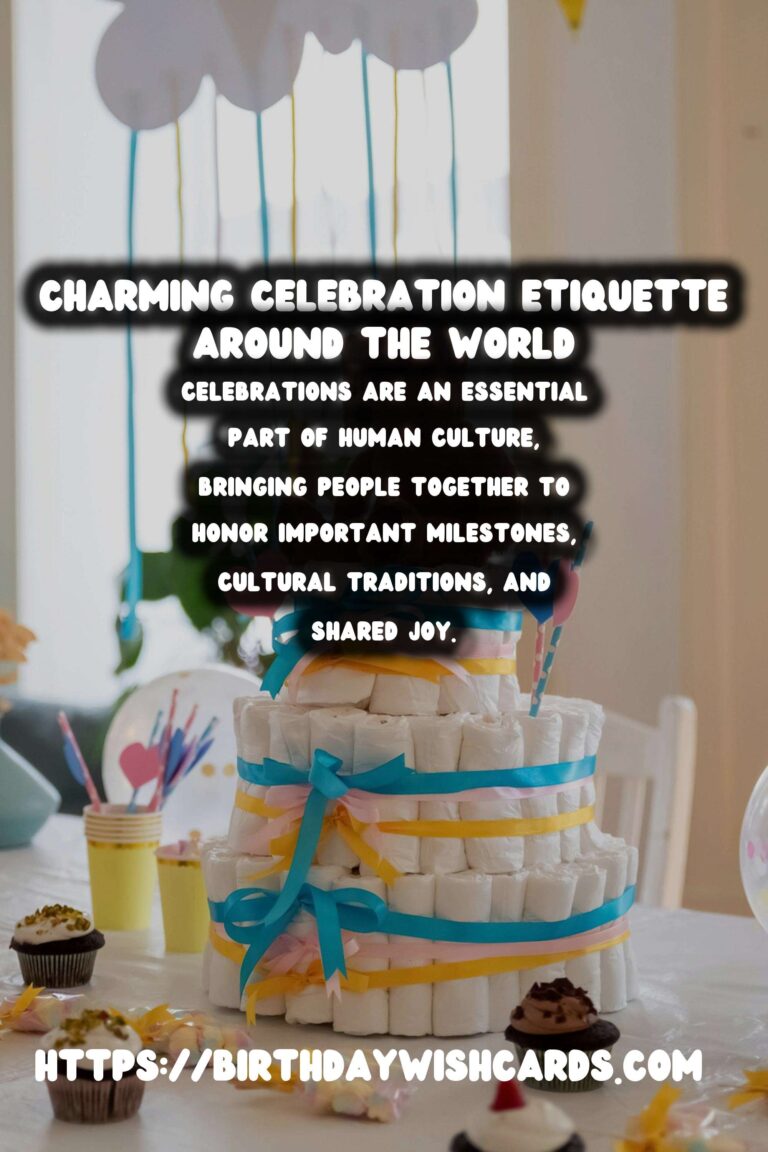
#CelebrationEtiquette #GlobalFestivities




